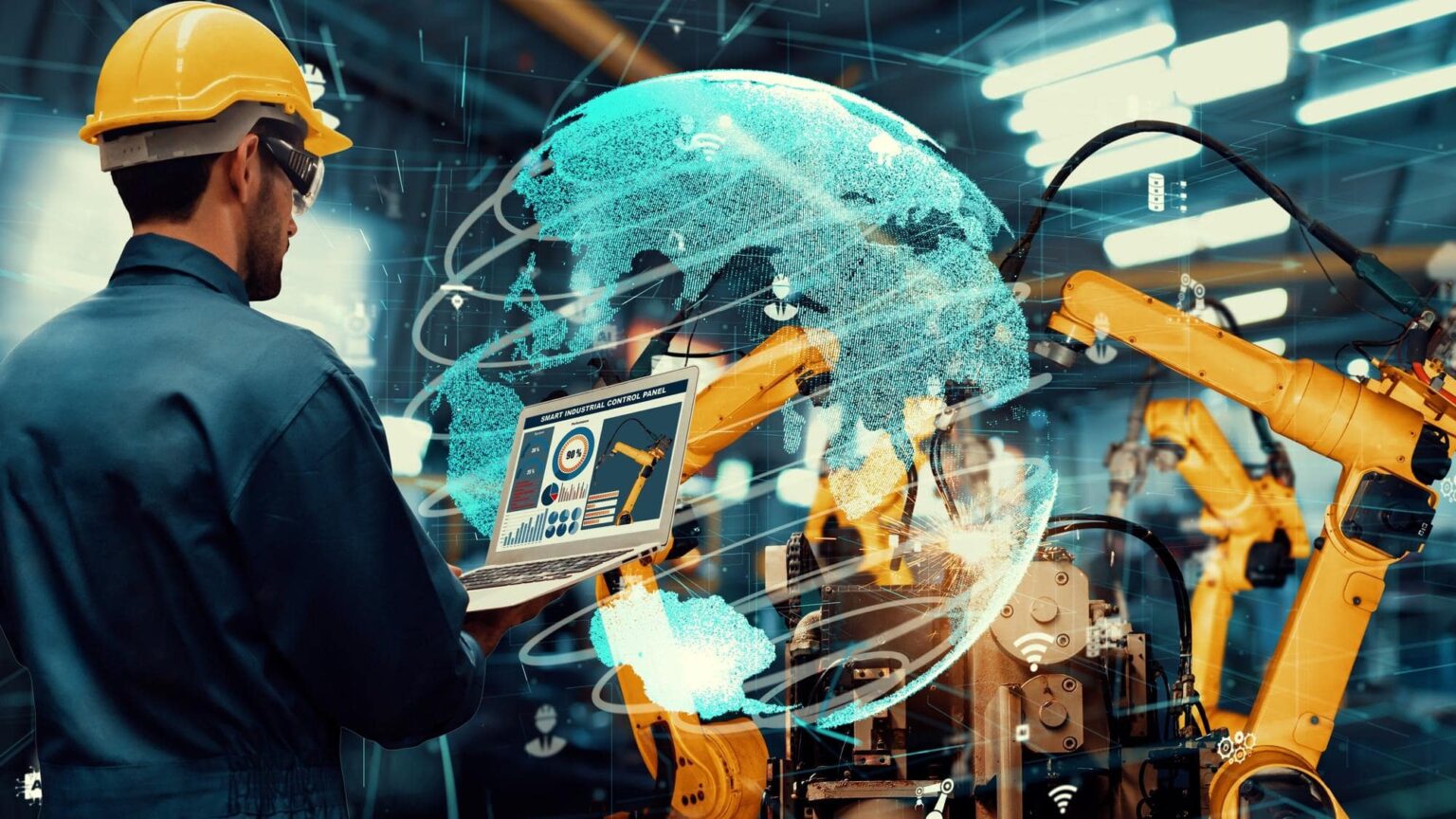The future of manufacturing technology is poised to transform the traditional factory into a highly efficient, agile, and interconnected environment. With advancements in automation, robotics, artificial intelligence, and data analytics, the factory of tomorrow will revolutionize production processes, increase productivity, and enable customized manufacturing. Here are key trends shaping the future of manufacturing technology:
- Industrial Automation: Industrial automation involves the use of robotics and advanced machinery to perform repetitive and labor-intensive tasks. Robots equipped with sensors, computer vision, and machine learning capabilities can handle complex operations with precision, speed, and accuracy. Automated systems and robotic arms work alongside human operators, improving efficiency, reducing errors, and enhancing safety in manufacturing processes.
- Internet of Things (IoT) and Connectivity: The IoT enables the connectivity of machines, devices, and sensors in the manufacturing ecosystem. Connected machines can communicate and share data in real-time, providing insights into production performance, machine maintenance, and supply chain management. IoT-powered smart factories facilitate better decision-making, predictive maintenance, and optimized resource allocation.
- Additive Manufacturing (3D Printing): Additive manufacturing, commonly known as 3D printing, allows the creation of complex three-dimensional objects layer by layer using digital models. This technology enables rapid prototyping, customization, and on-demand production, reducing lead times and costs. 3D printing also facilitates design optimization, material efficiency, and sustainability in manufacturing processes.
- Artificial Intelligence (AI) and Machine Learning (ML): AI and ML technologies are being integrated into manufacturing processes to optimize production, quality control, and supply chain management. AI-powered algorithms analyze vast amounts of data, enabling predictive maintenance, real-time quality monitoring, and demand forecasting. Machine learning algorithms can identify patterns, optimize workflows, and make autonomous decisions, enhancing efficiency and reducing waste.
- Big Data Analytics: Manufacturing generates vast amounts of data, and big data analytics leverages this data to extract actionable insights. Advanced analytics algorithms can analyze production data, identify bottlenecks, optimize workflows, and improve overall operational efficiency. Real-time data analytics enables predictive maintenance, inventory management, and resource allocation, leading to cost savings and improved productivity.
- Digital Twin Technology: Digital twin technology creates virtual replicas of physical assets, processes, and systems. These virtual models simulate and monitor the behavior and performance of physical objects in real-time. Manufacturers can use digital twins for design validation, process optimization, and predictive maintenance. Digital twins enable manufacturers to analyze and optimize production processes, reduce downtime, and improve overall productivity.
- Augmented Reality (AR) and Virtual Reality (VR): AR and VR technologies are being utilized in manufacturing for training, maintenance, and design purposes. AR overlays digital information onto the physical environment, providing real-time guidance, work instructions, and visual aids to workers. VR creates immersive virtual environments that allow designers and engineers to visualize and test product designs before production, improving accuracy and reducing errors.
- Sustainable Manufacturing: The future of manufacturing technology emphasizes sustainability by reducing waste, optimizing energy consumption, and minimizing environmental impact. Advanced manufacturing technologies enable the use of eco-friendly materials, recycling and reusing processes, and energy-efficient production methods. Sustainability considerations are becoming integral to the design, production, and supply chain processes.
The future of manufacturing technology holds tremendous potential for increased productivity, efficiency, and customization. The integration of automation, AI, IoT, and advanced analytics will reshape traditional manufacturing processes, enabling the factory of tomorrow to be more agile, sustainable, and responsive to customer demands.



